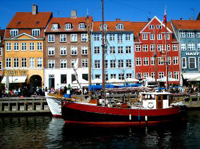The cost of living in Denmark is likely to vary based on your lifestyle. In the Economist Intelligence Unit’s survey on the most expensive cities in the world, the Danish capital of Copenhagen took the number 10 spot, having jumped 5 spots from its position in 2013. Although some services such as medical treatment are covered through taxes and the national welfare system, Denmark is still an expensive country, even by European standards. The good news is that people enjoy higher incomes here and therefore are able to afford the high costs of goods and services, such as petrol, food and utilities. Denmark also provides its residents with a high quality of life, which may help to balance out the high living costs.
AccommodationExpats can expect to spend a substantial portion of their monthly income on accommodation. The costs vary depending upon the location and monthly rental costs for apartments can range from DKK 6000 to DKK 25000. The costs of renting a house is slightly higher and can go up to DKK 40000 in some areas. When counting the costs of relocation, remember that you may be asked to pay an advance deposit of three months rent. Copenhagen is among the most expensive cities in Europe and most people prefer to rent properties here. The Amager area has many new housing projects that are available at reasonable prices. Properties in prime locations such as the Inner City are highly desirable, but come at high prices too. Due to a good public transport system, all parts of the city are accessible. Foreigners (EU and non-EU residents) and Danes are able to rent or buy property in the same manner and a 1 percent property tax is payable yearly. Expats and foreign investors usually buy property through an agent.
Food
Food costs are high in Denmark. Eating out at a restaurant would cost about DKK 60 for a cheaper meal and as high as DKK 90 to DKK 100 at a more expensive eatery. It’s possible to minimize these costs by cooking your own food at home. Grocery costs may add up to DKK 200 per week. On the times when you do want to eat out, opt for the lunch specials and buffets that many restaurants offer at reasonable prices. Low cost meals are also available at street stalls, which sell anything from hot dogs to sandwiches. These cost just about DKK 24 to DKK 28 and are actually quite delicious.
Transport
Public transport is fairly reasonable and Denmark has an efficient network of trains and buses. Government policy encourages the use of public transport and most residents use these services regularly. The Danish State Railways run the national rail network and there are also private companies that run railway lines across the country. Copenhagen’s yellow buses are an efficient mode of city transport. In the capital, there is a common pricing and zoning system and therefore the same ticket or pass can be used to commute freely in trains and buses and the Metro. Discounted cars are available for monthly travel in buses and trains. Taxis are more expensive, especially if used on a regular basis.
If you decide to bring a car to Denmark, you need to register it and pay a registration fee based on the market price of the car. Before registering a car, it is also necessary to have liability insurance and documentation of this must be provided at the time of registering. Additional costs include custom duty and VAT in the case of cars brought in from non-EU countries. Annual taxes and duties are applicable once registration is complete.
Childcare and education
According to the Expat Insider Survey 2014, 90 percent of the respondents gave Denmark a positive rating when it came to a friendly attitude towards families and children. The results were also positive when it came to easy availability of childcare and availability of education. For EU citizens, education costs are minimal since there is no charge for tuition. But non-EU families may have to bear high costs for educating their children. The fees vary depending on the school and the more expensive ones can charge up to DKK 120,000 annually.

